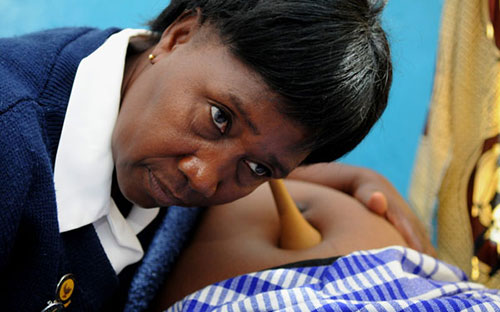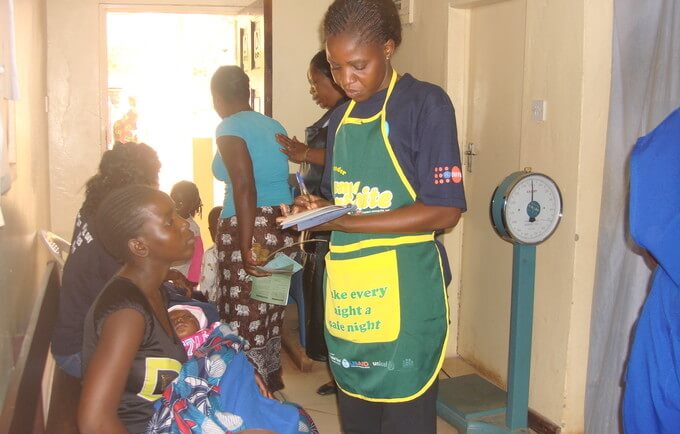In rural Zambia, midwives at the Bwacha Health Center provide quality maternal care

Central Province, Zambia – “Every time I report for work, I strive to offer quality services to mothers, including conducting deliveries and discussing infant nutrition and care with new mothers,” says Flavor Kangwa, a midwife at Bwacha Health Center in Zambia’s Central Province.
Skilled midwives like Ms. Kangwa are crucial in addressing Zambia’s high maternal mortality rate, which currently stands at 398 deaths per 100,000 live births.
Rural areas across the country are estimated to have only 70 health care workers per 100,000 people, with some rural health facilities managed by only one health worker or unqualified support staff. In the country’s Central and Western Provinces, the ratio of nurses, midwives, medical and clinical officers to patients fall below the World Health Organization’s recommended threshold of 2.28 per 1,000 people.
Bwacha Health Center is one of the 50 health facilities in Central Province targeted for support by the UNFPA-UNICEF Joint Program on Health Systems Strengthening and Social Accountability. Supported by the United Kingdom Department for International Development (DfID), the initiative aims to reduce neonatal and maternal deaths in the Central and Western provinces.
Training midwives is a key part of the Joint Programme’s work. Like many rural-based health workers, Ms. Kangwa lacked essential skills to enable her provide lifesaving emergency obstetric and newborn care. In particular, she needed training in repairing cervical tears.
Women experience cervical tears during labor and delivery for a range of reasons, including being a first time mother, having a large baby or one in an unusual position, or having prolonged labour. During the time it takes a tear to heal, women experience discomfort that affects other aspects of their overall social well-being.

In the past, lack of ambulance services in the area served by Bwacha Health Center meant that women who developed tears or other complications might not be transferred to a larger facility equipped to treat them. Now, there is no need for them to be transferred. Through onsite training and mentorship in the provision of services, facilitated by UNFPA, Ms. Kangwa is now able to successfully perform cervical tear repairs and other critical procedures.
“A few weeks ago, I facilitated an undiagnosed twin delivery,” she recounted. “After delivering the babies, I noticed the mother begun bleeding heavily and when thoroughly examined, I discovered that she had a cervical tear.”
Using the skills she acquired through onsite mentorship, Ms. Kangwa managed to repair the cervical tear, and the bleeding stopped.
“Six days after she was discharged, the new mother came to the health center for postnatal checkup, during which we certified she was well with no compliant,” she said. “I was filled with so much joy, knowing that I contributed to restoring her health!”
A version of this article was originally published on UNFPA.org.